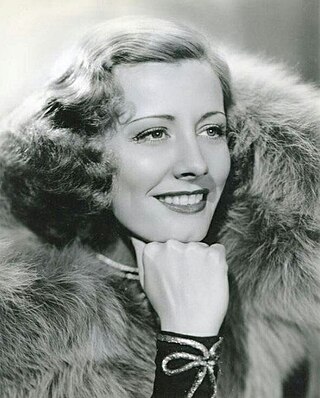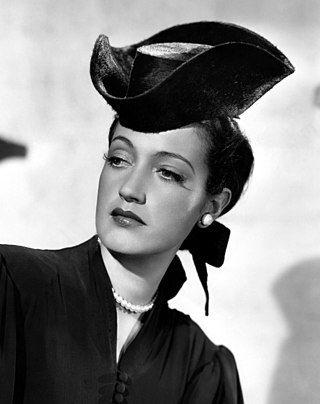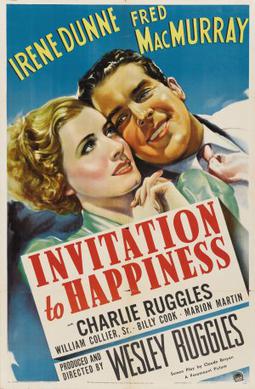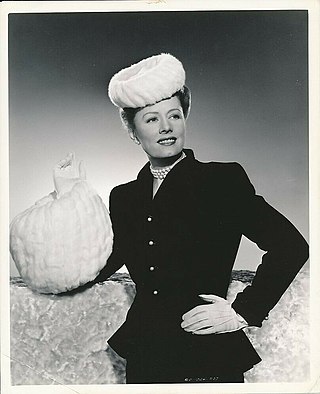
Love Affair is a 1939 American romance film, co-starring Charles Boyer and Irene Dunne, and featuring Maria Ouspenskaya. It was directed by Leo McCarey and written by Delmer Daves and Donald Ogden Stewart, based on a story by McCarey and Mildred Cram. Controversial on concept, the official screenplay was re-tooled and rewritten to appease Hollywood censorship and relied on actor input and improvisation, causing long delays and budget extensions.

Frederick Martin MacMurray was an American actor. He appeared in more than one hundred films and a successful television series in a career that spanned nearly a half-century. His career as a major film leading man began in 1935, but his most renowned role was in Billy Wilder's film noir Double Indemnity. From 1959 to 1973, MacMurray appeared in numerous Disney films, including The Shaggy Dog, The Absent-Minded Professor, Follow Me, Boys!, and The Happiest Millionaire. He starred as Steve Douglas in the television series My Three Sons.

Irene Dunne was an American actress who appeared in films during the Golden Age of Hollywood. She is best known for her comedic roles, though she performed in films of other genres.

Dorothy Lamour was an American actress and singer. She is best remembered for having appeared in the Road to... movies, a series of successful comedies starring Bing Crosby and Bob Hope.

General Electric Theater is an American anthology series hosted by Ronald Reagan that was broadcast on CBS radio and television. The series was sponsored by General Electric's Department of Public Relations.

Roberta is a musical from 1933 with music by Jerome Kern, and lyrics and book by Otto Harbach. The playful romantic comedy is based on the novel Gowns by Roberta by Alice Duer Miller. It features the songs "Yesterdays", "Smoke Gets in Your Eyes", "Let's Begin", "You're Devastating", "Something Had To Happen", "The Touch of Your Hand" and "I'll Be Hard to Handle".

Enoch Arden is a narrative poem by Alfred, Lord Tennyson, published in 1864 during his tenure as British poet laureate. The story on which it was based was provided to Tennyson by Thomas Woolner. The poem lends its name to a principle in law that after being missing for a certain number of years a person may be declared dead for purposes of remarriage and inheritance of their survivors.
Show Boat is a 1936 American romantic musical film directed by James Whale, based on the 1927 musical of the same name by Jerome Kern and Oscar Hammerstein II, which in turn was adapted from the 1926 novel of the same name by Edna Ferber.

High, Wide and Handsome is a 1937 American musical western film starring Irene Dunne, Randolph Scott, Alan Hale Sr., Charles Bickford and Dorothy Lamour. The film was directed by Rouben Mamoulian and written by Oscar Hammerstein II and George O'Neil, with lyrics by Hammerstein and music by Jerome Kern. It was released by Paramount Pictures.

John J. Mescall, A.S.C. was an American cinematographer. He photographed such silent films as Ernst Lubitsch's The Student Prince in Old Heidelberg (1927), but he is best known for his work in the 1930s at Universal Pictures, where he often worked on the films of James Whale. Mescall was famous for his elaborate, some might say grandiose, effective camera movements, in which the camera would often track completely across or around a set, or even one performer. He did not always use these kinds of camera movements, but his most famous films all have them.

It Grows on Trees is a 1952 American fantasy comedy film directed by Arthur Lubin and starring Irene Dunne in her final screen role. The cast also featured Dean Jagger, Joan Evans and Richard Crenna. It was produced and distributed by Universal Pictures.

Roberta is a 1935 American musical film released by RKO Radio Pictures and directed by William A. Seiter. It stars Irene Dunne, Fred Astaire, Ginger Rogers, and features Randolph Scott, Helen Westley, Victor Varconi and Claire Dodd. The film was an adaptation of the 1933 Broadway musical Roberta, which in turn was based on the novel Gowns by Roberta by Alice Duer Miller. It was a solid hit, showing a net profit of more than three-quarters of a million dollars.

Too Many Husbands is a 1940 American romantic comedy film about a woman who loses her husband in a boating accident and remarries, only to have her first spouse reappear—yet another variation on the 1864 poem Enoch Arden by Alfred, Lord Tennyson. The film stars Jean Arthur, Fred MacMurray and Melvyn Douglas, and is based on the 1919 play Home and Beauty by W. Somerset Maugham, which was retitled Too Many Husbands when it came to New York. The film was directed by Wesley Ruggles.

Never a Dull Moment is a 1950 American comedy western film from RKO Pictures, starring Irene Dunne and Fred MacMurray. The film is based on the 1943 book Who Could Ask For Anything More? by Kay Swift. The filming took place between December 5, 1949, and February 1, 1950, in Thousand Oaks, California. It has no relation to the 1968 Disney film of the same name starring Dick Van Dyke and Edward G. Robinson.

Francis Michael Dunne was an American actor, radio personality and disc jockey. He was active in television and films from 1945 to 1973, and was also credited as Steve Dunn, Michael Dunne, Stephan Dunne, and Steve Dunne.

Joy of Living is a 1938 American musical comedy film directed by Tay Garnett and starring Irene Dunne and Douglas Fairbanks Jr. with supporting performances from Alice Brady, Guy Kibbee, Jean Dixon, Eric Blore and Lucille Ball. It features the hit song "You Couldn't Be Cuter," written by Jerome Kern and Dorothy Fields.

Invitation to Happiness is a 1939 American drama film directed by Wesley Ruggles and written by Claude Binyon. The film stars Irene Dunne, Fred MacMurray, Charlie Ruggles, Billy Cook, William Collier, Sr. and Marion Martin. The film was released on June 16, 1939, by Paramount Pictures.
Frederic W. Ziv Company produced syndicated radio and television programs in the United States. Horace Newcomb's Encyclopedia of Television described the company as "by 1948 ... the largest packager and syndicator of radio programs" and later "the most prolific producer of programming for the first-run syndication market during the 1950s."

The following features lists of the film and television performances of actress and singer Irene Dunne (1898–1990), who appeared in 42 movies between 1930 and 1952, and was nominated for the Academy Award for Best Actress five times. She is best known for appearing in the screwball comedy films The Awful Truth, Theodora Goes Wild, and My Favorite Wife, as well as the romantic drama Love Affair.

















